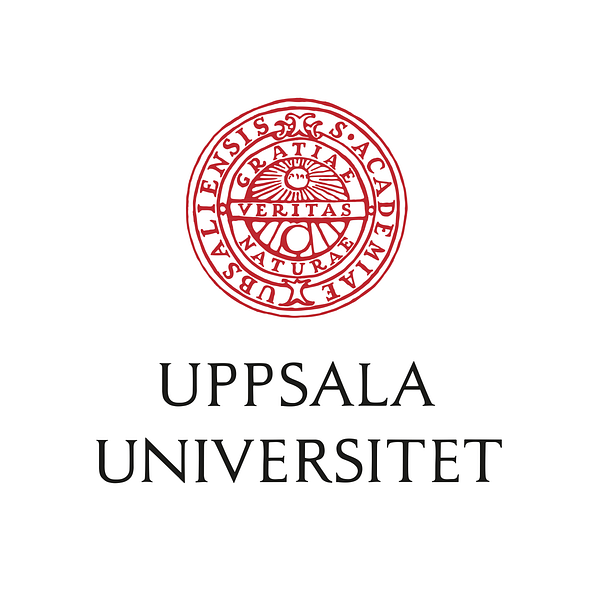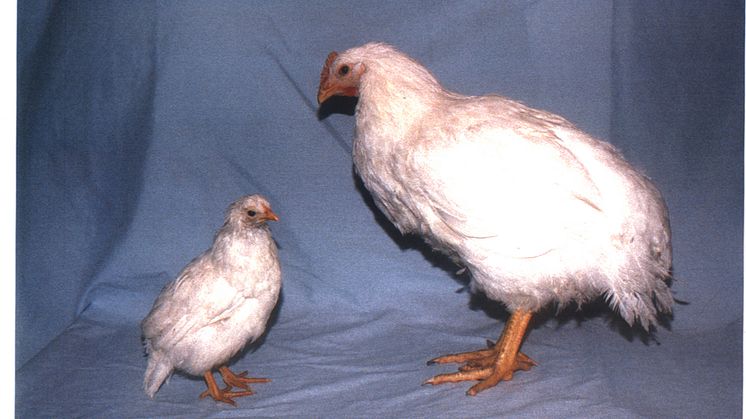Pressmeddelande -
Scientific breakthrough in genetic studies of animal domestication
The domestication of animals and plants is the most important technological innovation during human history. This genetic transformation of wild species has occurred as humans have used individuals carrying favorable gene variants for breeding purposes. In the current issue of Nature an international team led by researchers at Uppsala University has revealed some of the secrets underlying the remarkable development of the domestic chicken.
The domestic chicken has in recent years become the most important and cost-effective source of animal protein world-wide. In the beginning of the 20th century specialized layer (egg-producing) and broiler (meat-producing) chickens were developed. The approach has been remarkably successful and has led to huge improvements in productivity.
“Our strategy to study four different populations of layer chickens as well as four broiler populations allows us to reveal genetic changes of crucial importance for chicken domestication in general as well as changes that were essential for the development of layers or broilers”, says Leif Andersson, Uppsala University, who coordinated the study.
In 2004, a draft genome sequence of the chicken was established by sequencing a single female red junglefowl, the wild ancestor of chickens. The task required a major economic investment (millions of US dollars) and a large international team of scientists. In the current study the researchers have used new sequencing technologies and a modest budget to analyze pools of individuals representing eight different populations of the domestic chicken and a red junglefowl population.
“This illustrates how fast the field of genome biology is moving at present”, says Michael Zody, who did his PhD partially on this project and is now a researcher at the Broad Institute. “These new technologies allow us to address important biological questions that were impossible to study just a few years ago”.
A selective sweep takes place when a favorable mutation becomes fixed in a population. This happens in all species during the course of evolution and it happens in domestic animals as a consequence of human-driven selection for favored traits. One of the most interesting findings in this study was a striking selective sweep at the TSHR gene that codes for the thyroid-stimulating hormone receptor. In vertebrates, this protein has a key role in metabolic regulation but also in determining the timing of reproduction as a response to changes in day length, a trait that is strictly controlled in most wild animals but which is drastically altered in domestic chickens that can reproduce all year around.
“Our discovery that every domestic chicken that we have studied representing populations from Sweden to China carry a mutant form of the TSHR protein strongly suggests that this genetic change was an important step in the evolution of the domestic chicken”, says Leif Andersson.
Another very convincing selective sweep was observed in broiler chickens and involved the TBC1D1 gene, a gene that has previously been associated with obesity in humans and the TBC1D1 protein is involved in the regulation of glucose uptake in muscle cells.
“Our study shows that billions of broiler chickens worldwide carry a mutant form of the TBC1D1 gene and we are now very eager to identify the causative mutation at this locus and to reveal the molecular mechanism by which it impacts growth”, says Carl-Johan Rubin who was responsible for the bioinformatic analysis of selective sweeps.
The study is a breakthrough as regards genetic studies of domestic animals.
“Our study has direct implications for animal breeding and enhances the importance of the domestic chicken as a model organism for biomedical research since we can so effectively reveal genes associated with changes in phenotypic traits”, concludes Leif Andersson.
The group also include researchers from Linköping University, Karolinska Institute and SLU.
For more information contact: Professor Leif Andersson, Department of Medical biochemistry and microbiology, Uppsala university, phone: +46-18-471 4904, +46-70-514 4904, e-post: Leif.Andersson@imbim.uu.se
Regioner
Uppsala universitet - kvalitet, kunskap och kreativitet sedan 1477. Forskning i världsklass och högklassig utbildning till global nytta för samhälle, näringsliv och kultur. Uppsala universitet är ett av norra Europas högst rankade lärosäten. www.uu.se

